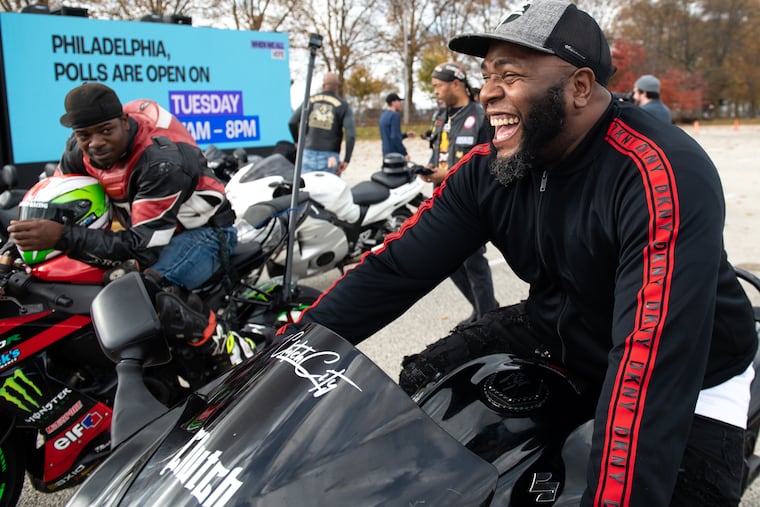Getting souls out to the polls
This last weekend before the election was crammed with get-out-the-vote efforts in Black neighborhoods across Philly — many spearheaded by the faith-based community.

In late October, with only a few weeks left until the election, a poll by Politico-Morning Consult showed bad news for Democrats. African American voters were significantly less enthusiastic about voting than either white or Latino voters in the rapidly approaching midterm election.
And a lack of enthusiasm within the Black community could spell doom for the Democratic party at the polls.
Which is why this last weekend before the election was crammed with get-out-the-vote efforts in Black neighborhoods across the city — many spearheaded by the faith-based community. It’s all part of an effort, collectively known as “souls to the polls”, to increase Black voter turnout and includes everything from prayer vigils to phone banking.
And even motorcycle parades.
Mother Bethel AME church pastor, the Rev. Mark Kelly Tyler, a motorcycle enthusiast and founder of Black Bikers Vote, said of his third get-out-the-vote ride on Saturday, Nov 5, that more than 100 bikers, some from as far as New York and Virginia, took part.
They traveled a route throughout the city where the voter turnout has been historically low — starting from Enon Tabernacle Baptist Church at 2800 Cheltenham Ave. in West Oak Lane and ending at the Church of Christian Compassion at 6121 Cedar Ave. in West Philadelphia.
Bikers were then greeted with a neighborhood get-out-the-vote block party.
“This is a perfect opportunity for motorcycle enthusiasts, like me, to fuse their passion for riding with something purposeful like voter awareness.” It isn’t that motorcades are new, Tyler explained, but that motorcycles generate excitement, especially among Black men who are less likely to vote than Black women. According to the U.S. Census, there is an eight-percentage point voter turnout gap between Black women at 55% and Black men at 47%.
“This [year’s] get-out-the-vote effort is as big as it has ever been,” said the Rev. Robert Collier Sr., president of Black Clergy of Philadelphia and Vicinity, which was founded in 1981 and represents 11 denominations and 300 churches.
For the African American community, churches have long been influential in getting their congregants to the polls. In addition to voting, they have focused on voter education and registration. Collier, who is pastor of the Galilee Baptist Church in Roxborough, one of the oldest Black churches in the city, said the Black Clergy were partnering this year with groups such as POWER to improve the effectiveness of their own organizing efforts.
» READ MORE: Pennsylvania 2022 voter guide
Voter enthusiasm has often lagged in midterm elections despite their importance. All 435 seats in the House of Representatives, approximately one third of all Senate seats and two thirds of state governors are on the ballots across the country during the midterm election. Pennsylvania too is selecting a governor and a senator.
However, there was historically high voter turnout during the last midterm election, November 2018, according to the U.S. Census Bureau, with over half of the voting age population of the country voting.
“This (year’s) get out the vote effort is as big as it has ever been.”
Traditionally, grassroots organizing has meant hundreds of volunteers knocking on thousands of doors, handing out flyers and making calls. But Rev. David Brown, an ordained minister in the United Methodist Church tradition, said churches had to find to novel ways to bring their congregants together because of the pandemic and as a result “a lot of young folks are experiencing church differently.”
Brown, the diversity advisor to the Office of the Dean at Temple University’s Klein College of Media and Communication, is a pastor at the multicultural First Church Media in Delaware County where he is involved in engagement and outreach activities .
He said the church will have to add digital and social media outreach to its traditional in-person souls to polls tools in order to keep younger African American voters engaged.
